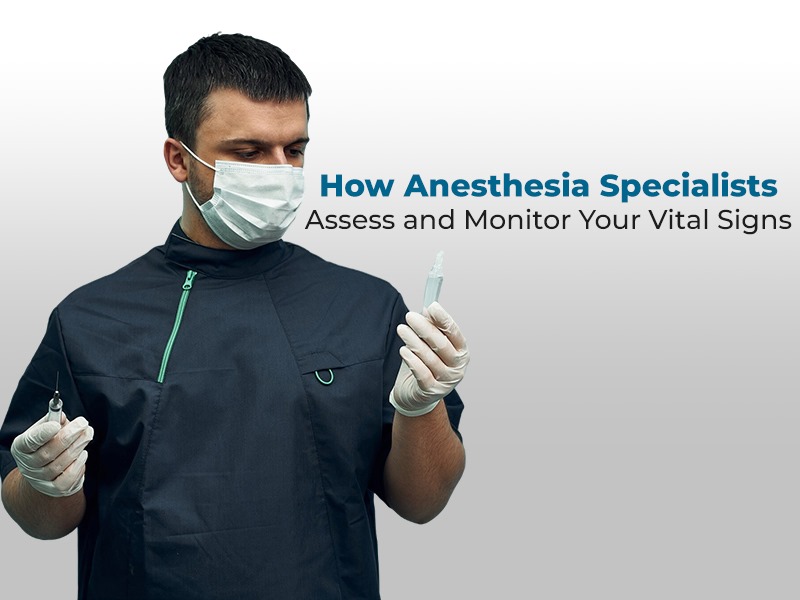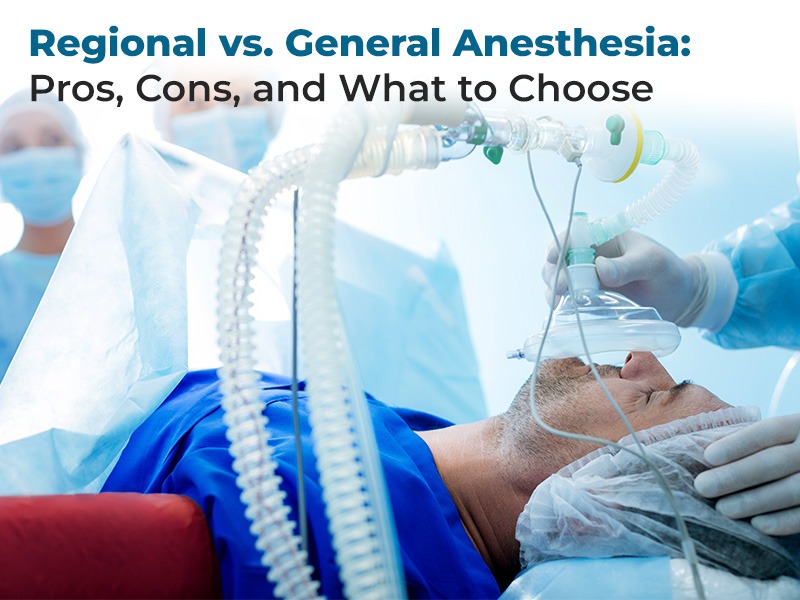Have you ever wondered what happens once you're under anesthesia during surgery? How does the medical team know you're safe? An anesthesia doctor is responsible for keeping a check on your vital signs —such as heart rate, blood pressure, and oxygen levels— and making sure that they stay within safe ranges.
We will explore how they monitor and maintain your health at Park Hospital while you're in the operating room.
What Are The Vital Signs Concerned?
When we talk about vital signs, we refer to the key physiological parameters that reflect the state of your health. The majority of them monitored during anesthesia are:
1. Heart Rate (Pulse): The pulse is the quantitative measurement of the number of times your heart beats in a minute.
2. Blood Pressure: The anesthesia specialists get the information about how well blood is being pumped by your heart and the conditions of blood vessels in your body with the help of blood pressure.
3. Respiratory Rate: It means the number of times you breathe in one minute, which helps the professionals determine whether the individual's lungs are functioning properly or not.
4. Temperature: One can evaluate your body's response to anesthesia and surgery by looking at your body's temperature. Also, this indicator helps in understanding your overall health.
5. Oxygen Saturation: This measures the percentage of oxygen in your blood, ensuring that your organs receive enough oxygen.
Pre-surgical examination
Before starting a surgical procedure that requires anesthesia, the professional must conduct an assessment. This involves reviewing your medical history, current health status, and any medications you are taking. They also perform a physical examination to assess your overall health and identify any potential risks associated with anesthesia.
An anesthesia doctor takes these steps to determine the appropriate type and dosage of anesthesia tailored to your needs. They will also develop a monitoring plan to keep track of your vital signs throughout the surgery.
Intraoperative Monitoring
Once the patient is in the operation theater and under surgery, an anesthesiologist continuously monitors the necessary health indicators.
Heart Rate and Blood Pressure: For monitoring these, electrodes are attached to the patient's chest for tracking heart rate, while a cuff on their arm measures blood pressure. The doctor constantly monitors these readings to ensure they do not cross the safe range.
Respiratory Rate: The patient's breathing after an operation is kept in check with the help of devices like capnography, which measures carbon dioxide levels in your breath. This helps ensure that the person is breathing correctly and that their lungs are functioning as they should.
Oxygen Saturation: Regarding oxygen saturation, a small device is clipped to the finger or earlobe called a pulse oximeter, which measures the oxygen level. This tool helps the team safeguard whether or not he receives the required amount of oxygen.
Temperature: During surgery, the individual's body temperature is kept under check to prevent it from dropping too low (hypothermia) or rising too high (hyperthermia).
Post-operative Monitoring
The work of anesthesia specialists extends even beyond the completion of surgery. They continue to monitor all the essential signs until and unless the person wakes up. The specialists and recovery room nurses continue observing the signs to confirm that the patient has fully and smoothly transitioned from anesthetized to full consciousness.
This period is of high importance as their body adjusts to the effects of anesthesia, and any potential complications can be identified and addressed promptly. Monitoring in the recovery room helps establish that all the necessary indications stabilize and that they have recovered safely from the anesthesia.
Conclusion
Anesthesia specialists' meticulous monitoring of vital signs is fundamental to ensuring a safe and successful surgical experience. From assessing heart rate and blood pressure to tracking respiratory rate and oxygen saturation, every aspect of vital sign monitoring is crucial for maintaining patient stability and addressing any potential issues that may arise during surgery.
At Park Hospital, the commitment to exceptional patient care is reflected in our advanced anesthesia monitoring practices. Our team of skilled anesthesia specialists employs state-of-the-art technology and techniques to continuously assess and manage vital signs, ensuring that each patient receives the highest standard of safety and comfort throughout their surgical journey. By combining expert care with cutting-edge equipment, Park Hospital strives to provide a seamless and secure experience, making patient well-being our top priority.





